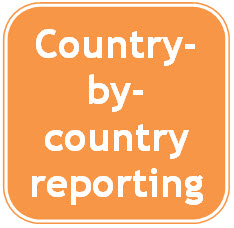 Tax Research LLP and the Tax Justice Network have made a joint submission to the European Commission this morning on their consultation on the future of the Transparency Directive. The full submission is here. The summary says:
Tax Research LLP and the Tax Justice Network have made a joint submission to the European Commission this morning on their consultation on the future of the Transparency Directive. The full submission is here. The summary says:
This submission addresses issues of opacity within the financial reporting of multinational corporations quoted on stock exchanges which we believe should be addressed by revision to the European Union’s Transparency Directive.
We focus in particular on these issues:
1. The current opacity regarding ownership of such multinational corporations;
2. The opacity regarding the structure of such multinational corporations;
3. The almost complete lack of information currently available on the internal trading of multinational corporations, and;
4. The current absence of information of the geographical impact of the activities of multinational corporations.
We believe that in combination these weaknesses in the current reporting requirements of multinational corporations leave them unaccountable for their actions to any identifiable party and that this has in turn allowed them to operate in what we call the ‘secrecy space’.
The secrecy space that multinational corporations occupy exists for these reasons:
a. So that the ownership of interests in multinational corporations need not be disclosed. As a matter of fact the ownership of many multinational corporations is hard, and maybe impossible, to identify. We note the reasons for this and recommend the changes the European Union should demand to rectify this situation.
b. Existing regulation has, on the basis of research we have undertaken, made it almost impossible to identify in the majority of cases, or with any consistency:
i. What companies comprise the group that the multinational corporation recognises to be under its management and control;
ii. To what extent those companies are controlled by the multinational corporation, and how that control is exercised;
iii. Where those companies that comprise that group are incorporated;
iv. What trades or other activities those companies are engaged in;
v. What level of activity those companies undertake.
This affords the management of multinational corporations the opportunity to undertake transactions that no one outside their organisation, and many within it, might never know about. There are substantial risks in this which we explain and explore.
c. The availability of considerable secrecy that verges on total opacity within tax havens, or as we would prefer to term them ‘secrecy jurisdictions’ (which term is used hereafter in this paper), considerably assist multinational corporations in hiding their activities. This is because:
i. Their ownership of a multinational corporation can be disguised in secrecy jurisdictions;
ii. Their activities in secrecy jurisdictions need never be disclosed;
iii. The nature of their internal trading is, therefore completely hidden from view.
We explain the consequences of this risk.
To address these issues we make two fundamental recommendations. In the first part of this submission we argue that the beneficial ownership of interests in multinational corporations must be recorded. Beneficial ownership of such interests does, of course, differ in a great many cases from legal ownership but must always be identified for anti-money laundering purposes and as such this is not an onerous obligation.
In part two of the submission we propose the use of country-by-country reporting within the financial statements of multinational corporations. The nature of country-by-country reporting and the advantages that we believe will from its adoption are explained.
It is our suggestion that in the interests of financial transparency, which we define in this paper, these two recommendations should be incorporated into the European Union Transparency Directive when it is amended.
Thanks for reading this post.
You can share this post on social media of your choice by clicking these icons:
You can subscribe to this blog's daily email here.
And if you would like to support this blog you can, here:



If anyone asks why this is necessary, just murmur the word “IKEA” to them.